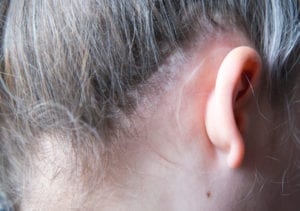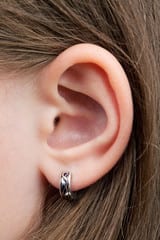Children can be a tough crowd. When they see something about another kid that they want to pick on, they don’t usually hesitate. Protruding ears are one of those issues.
“Satellite dish ears.” “Dumbo ears.” “Flying saucer ears.” Or insert your own phrase of choice here.
Fortunately, your son or daughter doesn’t have to live with their protruding ears — Dr. Wiener can perform ear surgery to bring the ears closer to the head. He also performs ear surgery to repair torn earlobes, to address stretched lobes, or to correct congenital issues.

What is otoplasty?
Otoplasty is the clinical term for ear surgery. This procedure is most common among children to correct protruding ears, but you don’t have to be a child to have your ears pinned. Also, whether an earring tore through your earlobe or a large gauge permanently stretched your earlobe, Dr. Wiener can perform otoplasty to make the necessary repairs.
How is otoplasty performed?
For ear pinning with younger patients, Dr. Wiener usually opts for general anesthesia to alleviate nervousness. For adults, local anesthesia is sufficient in most cases.
He begins by making a small incision behind the ear in the crease where the ear meets the head. He then sculpts, shapes, or bends the cartilage into a new position to bring the ear closer to the head. If only one ear is protruding, Dr. Wiener still may adjust the other ear to achieve symmetry between the two ears. Ear pinning usually only takes around one hour.
If the patient has other ear surgery needs, such as earlobe repair, different methods will be employed. When he is repairing a torn earlobe, for instance, he will usually remove a small amount of skin to create a better incision to stitch back together. This helps the incision heal with only a very thin scar. These options will be discussed during your consultation.
Who is a good candidate for otoplasty?
Anyone who doesn’t like the way their ears look is a good candidate for these surgeries with Dr. Wiener. The reasons are varied. A child’s ears may protrude, and this leads to teasing at school and issues with self-confidence. Adults who would wish their parents had scheduled this surgery when they were children can still have it for those same reasons. Also, torn or stretched earlobes are a typical need for otoplasty as today’s modern large-gauge and large hoop earrings can cause issues. Finally, congenital development issues can require surgery to address problems such as lop ear.

At what age can my child have ear pinning surgery?
The only requirement for this surgery is that the ears are fully grown. This is a good time to have otoplasty with Dr. Wiener because the surgery can be completed before the child begins school, where teasing could be a problem if the ear protrusion isn’t addressed.
What are the risks associated with otoplasty?
Although relatively simple, ear surgery is still surgery, so it entails the same risks as with any surgery: bleeding, infection, poor incision healing, and the like. Otherwise, this is a very low-risk procedure. The satisfaction for the child (or adult) not having his or her ears protrude or having stretched earlobes brought back to normal far outweighs any possible risks involved.
What is recovery like after otoplasty?
When this surgery is complete, Dr. Wiener will have the patient’s head wrapped in special heavily padded cotton bandages, referred to as “fluff bandages.” After a few days, these will be replaced with surgical dressings that need to be worn for the remainder of the first week. At that time, stitches will be removed. Due to the blood pressure in the area, there will be some throbbing for a couple of days, but that can be managed with pain medication. Patients need to avoid sleeping on the affected ear or ears for about two weeks. Children can return to school after about one week. Adults often won’t need an entire week, although this varies by the patient.
Will there be any visible scarring?
For true ear pinning surgery, there isn’t a visible scar. This is because Dr. Wiener is able to make the necessary incision behind the ear. For earlobe repair procedures, there will usually be a fine line where the two sides were brought together. These fade very quickly.
How long does ear surgery take?

Simple ear pinning surgery usually only takes about one hour. Surgery to repair torn earlobes is about the same. The more involved rebuilding of congenital ear problems requires more time, but each patient’s situation is unique. During your consultation, Dr. Wiener can give you an idea of what will be involved with your surgery or your child’s.
Will my ears be smaller after having otoplasty surgery?
Dr. Wiener can make the ears smaller if that is the goal. Otherwise, most otoplasty procedures have the goal of bringing protruding ears closer to the head. In these surgeries, Dr. Wiener does not impact the outer ear at all. He simply makes an incision in the cartilage behind the ear, enabling him to bring the ear closer to the head.
How will having otoplasty affect my hearing?
The outer ear, the visible portion, only collects sound waves and channels them into the ear canal, where the sound is amplified. The real aspects of hearing all occur inside the ear canal, which is not affected in any way by otoplasty. These surgeries only address the outer ear, often simply bringing the ear closer to the head in a straightforward procedure.
Can I swim following my otoplasty surgery?
Recovery after otoplasty is not difficult. Adults can usually return to work in 5-7 days. Children can return to school in a week. As for swimming and other water contact, it’s wise to wait until your incisions are completely healed. This means no swimming pools, hot tubs, lake, or ocean swimming for 3 weeks after your surgery. Lake Michigan can wait.
Will I be prone to ear infections following otoplasty?
Not at all. As mentioned above, these procedures are cosmetic in nature. They only change the shape or the protrusion of the outer ear. They do not have any impact on the inner ear. Because ear infections occur within the inner ear, otoplasty won’t change the prevalence of a person getting ear infections in the future.
Is there anything that needs to be done to prepare for otoplasty?
As mentioned above ears have finished growing by the age of 4. For children younger than 12 Dr. Wiener opts to use general anesthesia in a hospital setting. For children over 12 and adults, the procedure can also be done under straight local or local anesthesia with some sedation. This alleviates problems with nervousness. We will give you instructions on eating and so forth for the night before your child’s surgery. The procedure is about 1 hour and a half.
As for adults, you’ll need to stop taking anti-inflammatory medications, any blood thinning medications, and most supplements a week before your procedure. You’ll only be under local anesthesia with sedation, so you won’t need to fast.

When will I see my final results from otoplasty?
Your results are immediate, although you won’t be able to see them after surgery because your head will be bandaged.The bandages will be removed the day after surgery, and ointment should be applied to the incisions. A headband should be worn to keep the ears from bending. There will be swelling and bruising for the first week. From there, your results will be completely visible. You will have some swelling, but your ears will be dramatically different even with the swelling.
How long will the results from otoplasty last?
The results are permanent, though slight relapse can happen early in the healing process, but that risk is very low. If Dr. Wiener is bringing the ears closer to the head, they will never again project outward. If he repairs a torn earlobe, unless you catch a hoop earring again, the lobe won’t change.
Patient Testimonial
“Dr. Weiner and his staff are beyond amazing. His bedside manner and the way he makes you feel so at ease is impeccable. I have never met a doctor where are talent and kindness we both even. If you are looking for any type of surgery please consider him.” – Sheryl R.
Schedule a Otoplasty Consultation
If you’re interested in learning more about otoplasty please contact us for a consultation at 773.763.3990 or fill out our contact us form. We will discuss your needs and concerns, and determine your best course of action.

